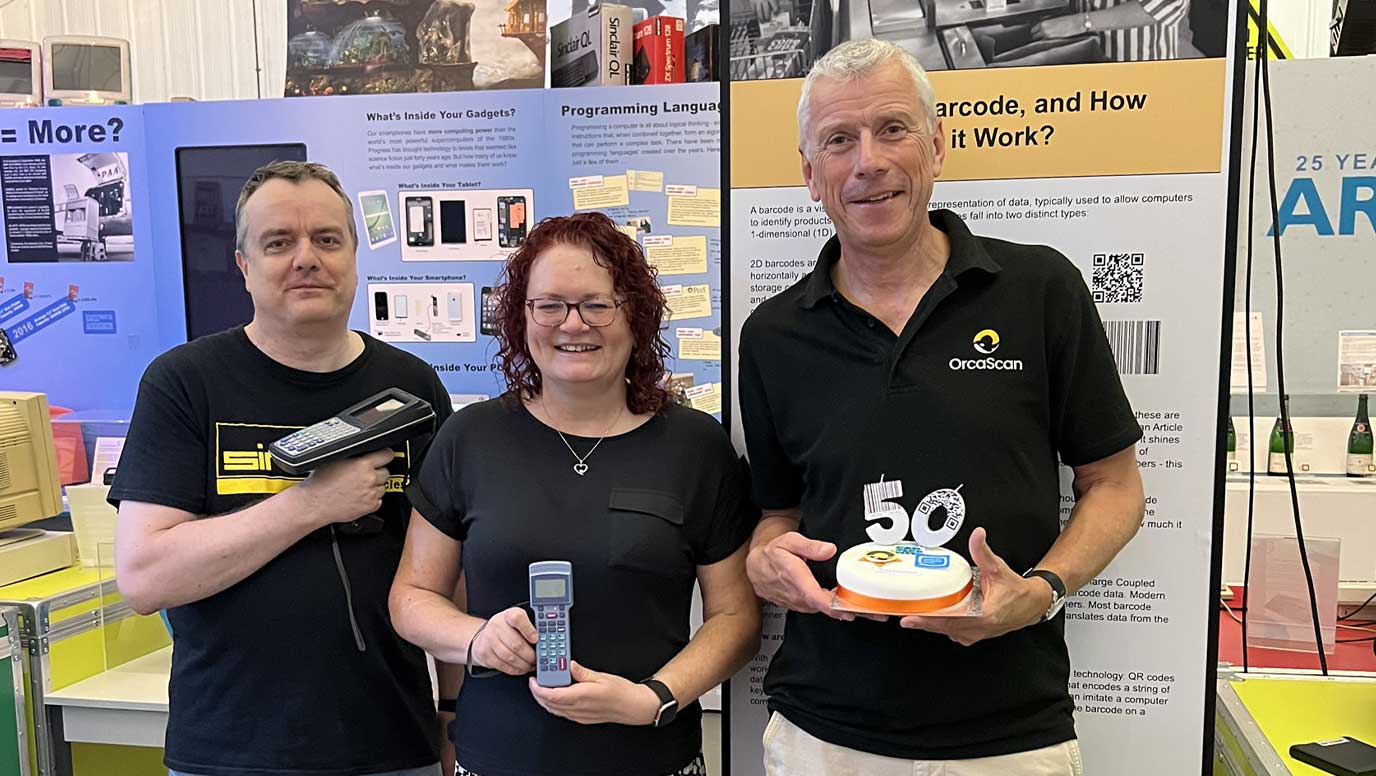50 Years of barcode scanning celebrated in Cambridge

Running until October 6th, the ‘Celebrating 50 Years of Barcode Scanning’ exhibition explores the role that barcodes have played in the history of computers and technology, showcasing how barcodes have evolved and revolutionised various industries from healthcare to retail.
The Centre for Computing History, home to the exhibition, charts the story of how computers have become an inextricable part of all our lives and changed our world over the last 80 years.
Orca Scan CEO John Doherty said “Barcodes have been central to technological evolution for the past 50 years, they are used and scanned billions of times daily across multiple industries. This exhibition not only commemorates the remarkable journey of barcodes but also aims to inspire innovation for the next 50 years. We are thrilled to have had the opportunity to collaborate with The Centre for Computing History and Datalogic to bring this to life.”
Orca Scan is a one-stop platform for all things barcode, that allows companies to build enterprise-grade solutions without code. Since 2016, they have worked with over 355,000 users worldwide to simplify barcode tracking.
The collaboration with Datalogic, a global leader in the automatic data capture and process automation markets specialised in the designing and production of barcode readers, has allowed for pieces of barcode history to be available to view for the first time - including a model of the famous scanner used in the Simpsons opening titles.
Jonathan Brown, Channel Sales Manager for Northern Europe at Datalogic added: “It has been a delight to work with Orca Scan on the forthcoming Barcode Exhibition and Launch Event at the Cambridge Centre for Computing History. Orca Scan’s innovative expertise are perfectly aligned with our solutions to improve customer experience, and we’re proud to have collaborated with them on this excellent, educational display.
“The Exhibition tells the story of the barcode, how it has evolved over the last 50 years and the new innovations that are improving supply chains across a multitude of industries. It will be supported with some of our own historic devices on display.”
The Centre for Computing History (CCH) was founded in 2006 by Jason Fitzpatrick, Elaine Symonds and Dr Lisa McGerty as an educational charity to tell the story of the Information Age through exploring the historical, social and cultural impact of developments in personal computing.
It offers a range of learning services on site including programming and electronics workshops, activities exploring the history of computing and other interactive educational opportunities using people's stories along with 1980s BBC Micros, Raspberry Pis and Micro:Bits for school students and the general public.

